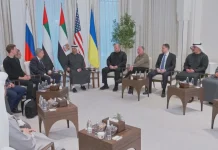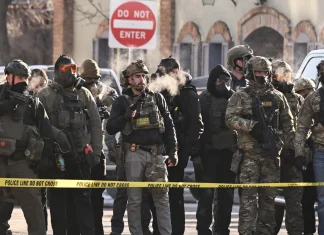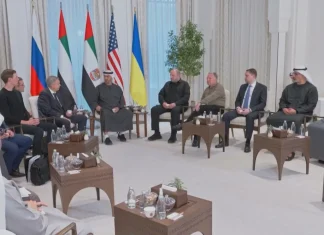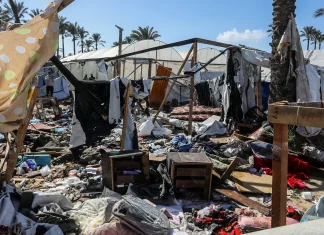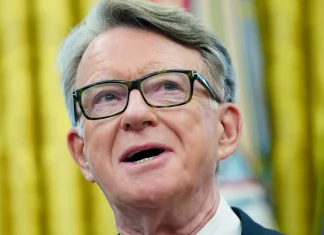After the Cheers: What Andrej Babiš’s Win Means for the Czech Republic — and for Europe
On a cool Prague evening, the crowd outside the Forum Karlín swelled like a sea of navy caps. “Strong Czechia” baseball hats bobbed in the lights, a deliberately familiar echo of international populist branding. Inside, billionaire-turned-politician Andrej Babiš stepped up to the microphone and, with a mixture of relief and brio, announced what pollsters had already whispered all day: his ANO movement had emerged top of the ballot in the parliamentary election.
The numbers were stark and simple enough to summarize a complicated next chapter: with 99% of districts counted ANO led with 34.7% of the vote, while the centre-right coalition Spolu trailed at 23.2%. Projections put ANO at roughly 80 seats in the 200-seat lower house — a clear victory, yet one shy of an absolute majority. The incumbent prime minister, Petr Fiala, conceded. President Petr Pavel is now set to begin consultations to name the next government.
Promises that Pulled Voters In
Babiš’s pitch during the campaign was elemental and emotional: faster growth, higher wages and pensions, lower taxes, and targeted tax discounts for students and young families. In an electorate that has felt the squeeze of the past few years — inflationary shocks, rising energy bills, and stagnant real incomes — those promises land like an embrace.
“We want practical help,” said Martina Kovaříková, 34, who runs a small café in Brno. “When I wake up each day, I’m thinking about how to keep staff and pay rent, not about geopolitics. If someone says, ‘We will ease that,’ people listen.”
That listening was visible in the election returns. Many voters are weary of austerity rhetoric and are hungry for tangible relief. ANO’s economic pledges, though costly, echoed a broader European mood: a tilt back toward social support and away from the fiscal discipline that has dominated some capitals since the eurozone crisis.
Local Color: Why This Felt Like a Turning Point
In small towns outside Prague and Moravia, the election felt personal. At a market stall in Olomouc, an elderly woman wrapped a waxed apple in one hand and said, “We want dignity in our pensions. I didn’t vote for anyone before, but this time I did.”
Factory towns, too, reported a similar sentiment. “People are hungry for stability,” said Lukáš Dvořák, a union representative at a steel plant in Ostrava. “After years of price spikes, promises of higher wages matter — even if you suspect they may not pass unchanged into law.”
The Political Tightrope: A Win With Big Buts
Victory on election day, however, is just the beginning. Babiš faces a thicket of legal and political obstacles before a comfortable premiership could become reality.
He remains the owner — at least in public perception — of Agrofert, a sprawling chemicals and food conglomerate that has loomed over Czech business and politics for years. Conflict-of-interest rules, designed to prevent state power from tangling with private wealth, stand ready to test his ability to lead without ceding influence. On top of that, long-running fraud charges tied to the alleged misappropriation of an EU subsidy from over a decade ago still hang over his head, charges he has consistently denied.
“It’s not just about the votes; it’s about institutions,” said Jana Havel, a constitutional law professor at Charles University. “European legal norms and domestic anti-corruption frameworks will be central in the weeks ahead. The president has a role to play in gauging who can form a government without undermining the rule of law.”
Coalition Math and Compromises
With ANO short of a majority, conversation shifted quickly to partners and conditional support. Babiš said he would seek to govern alone but was open to talks. He has signalled an openness to discussions with smaller parties like the Motorists (opponents of the EU’s green policies) and the anti-EU, anti-NATO SPD — parties with starker, more divisive agendas.
Petr Macinka, leader of the Motorists, told a local station, “We will negotiate for common-sense policies — lower regulatory burdens and protection for drivers.” Radim Fiala, deputy chairman of SPD, added on television, “Our aim was to end the Fiala government. Supporting a minority ANO cabinet would meet that goal.”
But the more extreme pro-Russian lists underperformed compared with expectations. SPD captured just 7.8% and a resurgent far-left bloc built around the Communist Party failed to cross the 5% threshold required for parliamentary representation — a sign that fringe politics had limits on Election Day, even amid widespread disenchantment.
Europe, NATO, and the Razor’s Edge of Policy
Babiš has been an ideological chameleon: from once wanting to join the euro to his current euroscepticism; from a mainstream centrist to a figure aligned with Viktor Orbán’s illiberal camp in Budapest. He has publicly signalled support for President Donald Trump’s worldview and has allied with far-right voices in the European Parliament under the “Patriots for Europe” banner.
Yet he insists he will not pull the Czech Republic out of the EU or NATO. “We want to save Europe,” he told reporters on election night, adding that his party is “clearly pro-European and pro-NATO.” Still, there are clear markers of friction: he has opposed some European Parliament votes supporting Kyiv and has said he would end the “Czech initiative” — a coordinated effort that purchased ammunition for Ukraine with Western donor funding.
“This election tests Europe’s capacity to keep unity in the face of domestic discontent,” said Dr. Michael Rosenberg, a Brussels-based analyst on Central European politics. “If Prague shifts policy on Ukraine, even in small ways, it could ripple across EU cohesion on sanctions, security assistance, and solidarity.”
Questions That Go Beyond Prague
What should we read into a victory that mixes populist rhetoric with pragmatic promises? Is this the start of a broader swing in Central Europe, or a local reaction to economic strain? The answers matter for migration policy debates, climate ambition, and NATO’s eastern flank.
Consider the human scale: younger families who hope to buy a flat and older citizens worried about their pensions. These are the voters who propelled ANO forward. The policy trade-offs now — will promises be fiscally responsible or politically expedient? — will determine how that victory ages.
“We want respect,” said Miroslav Beneš, a 58-year-old electrician from Pilsen. “We want a government that looks after ordinary people. If Babiš can do that, we’ll support him. If not, what else do we have?”
What Comes Next
In the coming days President Pavel will meet party leaders to decide who gets the first shot at forming a government. Expect intense negotiations, legal scrutiny, and headlines that will stretch beyond the Czech borders. The choices made in Prague will reverberate through Brussels and NATO capitals, where officials will be watching to see if a traditional partner holds to commitments on security and European unity.
For citizens here, and for observers abroad, the real question is less about campaign slogans and more about outcomes: Will pledges of higher wages and lower taxes translate into stronger livelihoods, or into fiscal strain and deepened political polarization? Will Czech democracy strengthen through accountability, or fray under the pressure of concentrated wealth and populist momentum?
For a nation of about 10.5 million, tucked in the heart of Europe, the stakes feel both intimate and continental. As Prague settles from celebration into the hard work of coalition-building, the world watches: not merely for the fate of one government, but for clues about the trajectory of European politics in an era of economic anxiety and geopolitical stress.
What do you think — is this a corrective that will restore people’s faith in politics, or the beginning of a recalibration with deeper consequences? Pull up a chair. The debate has only just begun.





